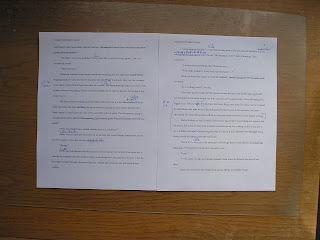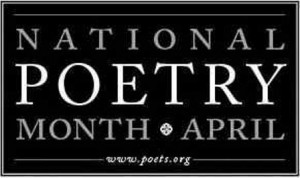I was on spring break last week. Always billed as a "time to recharge."
Usually it's a staycation at Casa Thornton, with plenty of spring-specific chores in need of doing. This year, my wife–God love her!–had other ideas.
She dispatched me on an epic quest in search of my touchstone so I could re-tap my wellspring.
In other words, she gave me the gift of time and headspace in order to help me find my groove with my writing. And she did it by sending me to Cannon Beach for a couple of days, so I could write without distractions.
I don't do anything by half-measures, so my particular touchstone really is a stone. Solid rock. Solid, massive rock.
In fact, at 327 feet above the sea, it's the fourth largest sea stack (off-shore monolithic rock) in the world. My touchstone is Haystack Rock.
 |
| My touchstone |
I just turned 52, and I have been visiting Cannon Beach since I was three months old. I have come on vacations, stayed for long weekends, even once memorably took an overnight road-trip on a whim (Oh, college...) with two friends from Spokane to Cannon Beach. We got there in the middle of the night, stoked the coals of a dying beach fire, enjoyed the rock and the night and the stars for a couple of hours, then turned around and drove home. We were back in Spokane by noon.
And I have come to pay homage to my touchstone after break-ups, before changing jobs, in between moves. So many of the transitional times in my life have involved a pilgrimage to commune with Haystack.
And so it was last weekend. You see, I sold my first book to a publisher in 2004, and saw it in print in 2005. Over the next five years I brought my total of written, sold and published books up to an even ten.
And then I met my wife. In fact, the back-end payment of the advance on my ninth book helped pay for our honeymoon. After that I collected and edited a West Coast-themed crime fiction anthology, wrote and sold a couple of short stories, and my wife and I welcomed our son into the world and into our family.
With these new demands on my time and headspace, something had to give, and it couldn't be my day gig (I teach ancient history to 8th graders. And like I tell them, by "ancient history," I'm not talking about the 1990s!). So it was my writing.
I had to hit pause at the end of the first draft of an historical mystery I'd been researching and working on since before I met my wife. My marriage, my kid and the house all needed to come first.
But like an itch you can't quite scratch, the story had not left me. If anything it tormented me as I attempted to squeeze in time and energy and headspace to try to wrap it up. I wrote thousands of new words, tweaked old scenes, and generally stalled, because I no longer had the option of dropping everything and blocking the world out until I'd hit my daily word count.
This is not to say that it can't be done, that writers can't juggle very small children, a demanding day job, a good marriage and a fulfilling writing career. People manage to do it all the time.
And folks like me are rightly in awe of them. (The immortal Jess Lourey comes to mind: did all that and did it as a single mother, to boot! She's truly a wonder.).
I'm just saying it couldn't be done by me.
Add in the demands of my wonderful wife's corporate gig (she's management now, and I don't tell her nearly enough how incredibly proud I am of her. And I am!), and we needed for me to pull the slack at various times over the last four-plus years.
And I hated stalling out on my writing.
HATE.
HATE.
HATED it.
But what I kept coming back to was that I loved being married to my wife, adored my son, and could not escape the notion that my child did not ask to be born. We wanted children. Specifically, we wanted him.
So I wrote when and where I could, and never quite gave up on it.
And then a funny thing happened.
My son started preschool.
Not "funny," so much as "wondrous."
I also wrapped up a couple of unrelated long-term time-suck commitments that have helped free up my writing time/attention even more in the time since my son started school last September.
And the result is that the first three months of 2017 have been more productive for me that the last two years put together. I am about to release my first novella, and the novel (yes, that novel!) is on-pace to go to my agent in June.
June!
This is not to say that it's all been smooth sailing. I still get bogged down in the day-to-day every now and again. Like a couple of weeks ago.
And my wonderful wife, the smartest manager I know (on so many levels!), sent me on my quest.
Let me show you the view from my writing desk over the course of those two glorious, word-count-packing days:
 |
| Magic! |
And two days later, I got to celebrate the return of my long-lost writer's voice with two people whose opinion matters most to me.
 |
| Easter Morning, 2017 |













































